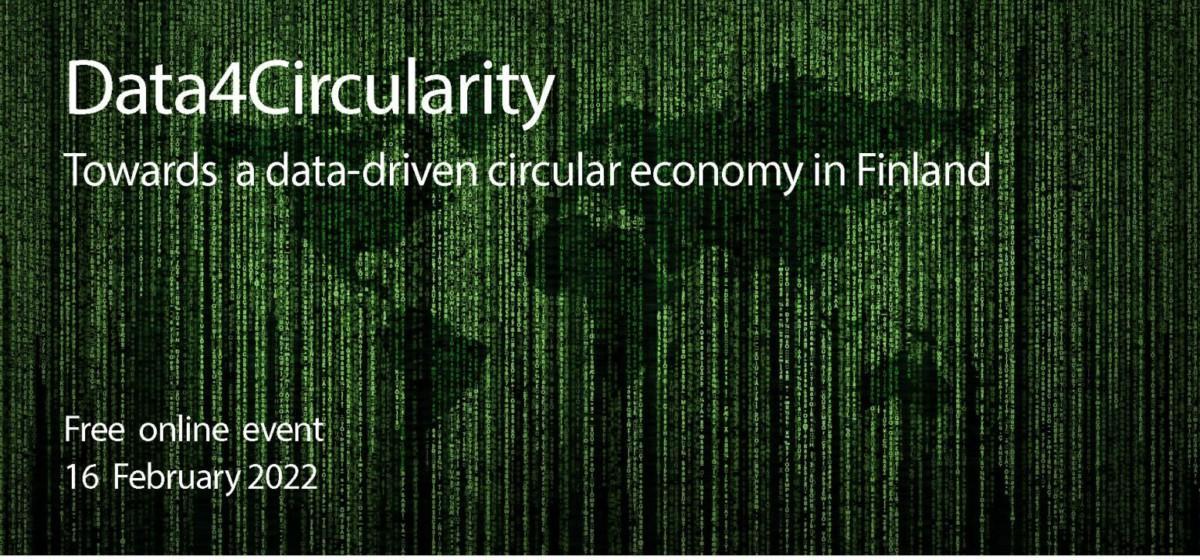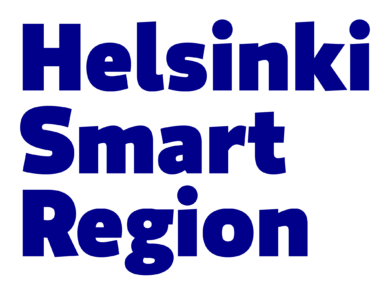Events
Data4Circularity
16.2.2022 - 16.2.2022

This online event is free of charge. It will serve thought-provoking debates and cases and shed light on some of our most interesting projects and research results related to circular ecosystems and accelerators, Gaia-X, data, tools and technologies, system mappings and governance initiatives.
Registration is open until February 9.
Organisers
Circular Design Innovation Community, Circular Design Network Project, VTT, Syke, Aalto, GTK, Luke, Motiva Services.
9.00-12.15 Plenary
Sketchnoting by Linda Saukko-Rauta / Redan Redan
Welcome and introduction to the theme of the day, Annukka Berg, SYKE & Vesa Silfver, Motiva Services
EU’s twin transition towards digital and circular economy, Annika Hedberg, European Policy Centre
Commentaries:
Mapping the twin transition – Our key findings and biggest surprises, Liisa Pesonen, Luke
The unturned stones – Stakeholder perspectives to data use and opportunities for a circular economy, Inka Orko, VTT
Data giants as game changers, Juha-Pekka Raeste, Helsingin Sanomat
The state and promotion of a data-driven circular economy in Finland – What steps are being taken in circular and artificial intelligence programs? Sari Tasa, TEM
Cases: Understanding batteries, textiles and food/carbon as systems and key value chains
Textiles, Pirjo Heikkilä, VTT
Batteries, Sonja Lavikko, GTK
Food/carbon, Eeva Lehtonen, Luke
Launching the Handbook of a Data-driven Circular Economy in Finland – Data Sources, Tools and Governance for Circular Design, Tommi Kauppila, GTK
Commentaries:
Why more is not always merrier – The amount of data is increasing, but we could use it better, Susanna Horn, SYKE
Accelerating ecosystems for circular and digital twin transition in Finland, Paula Eskola, Motiva Services
Commentaries and cases:
Comparing Finnish ecosystems and accelerators with their European counterparts, N.N., Accenture
Verona as an accelerator towards circularity, Moona Pohjola, Verona
Pirkanmaa as a circular economy ecosystem, N.N.
Gaia-X and circular economy, Jaana Sinipuro, Sitra (Gaia-X) & Päivi Kivikytö-Reponen, VTT
Commentaries:
Experiences and opportunities related to Gaia-X – Finnish working group perspective, Ilkka Lakaniemi, Aalto
Decentralization paves the way for a circular economy, Kristiina Valtanen, VTT
13.00-14.30 Workshops
Workshop 1: Do we need national initiatives to promote a data-driven circular economy?
Finland has adopted a new strategic programme to promote a circular economy. In the programme, digitalization is seen as one of the key enablers of circularity. At the same time, the EU is proceeding on several frontiers to speed up the twin transition. What would be a feasible national strategy in this situation? Should we just wait and implement what is coming from the EU? Or is there space for an active national role and forward-looking initiatives? Could pioneering work even provide some advantages? What could such initiatives, e.g. active work in international contexts, financial instruments, regulatory sandboxes, be? In this workshop, we dig into these questions and seek to find some preliminary ideas for national initiatives and policies.
Workshop 2: Sustainable circular design – From knowledge to action
In design, the usability of data in its raw form is low – it needs to be further processed, analyzed and prioritized in order to become valuable knowledge for decision-making. Furthermore, the knowledge should finally lead to concrete actions and design improvements in the underlying systems. Commonly, design actions are expected to lead to overall improvements but often they may incur tradeoffs between multiple sustainability impacts. What is “sustainable circular design”? Who are the relevant actors in it? Which factors are determining the applicability of “sustainable circular design” in different industries? How does data on environmental impacts support the design of sustainable circular supply chains? Are tradeoffs acceptable and how should they be integrated into decision-making frameworks? This session presents a holistic decision-making framework to support sustainable circular design and aims to discuss the gaps, benefits and practical use cases with the participants.







 Return to listing
Return to listing